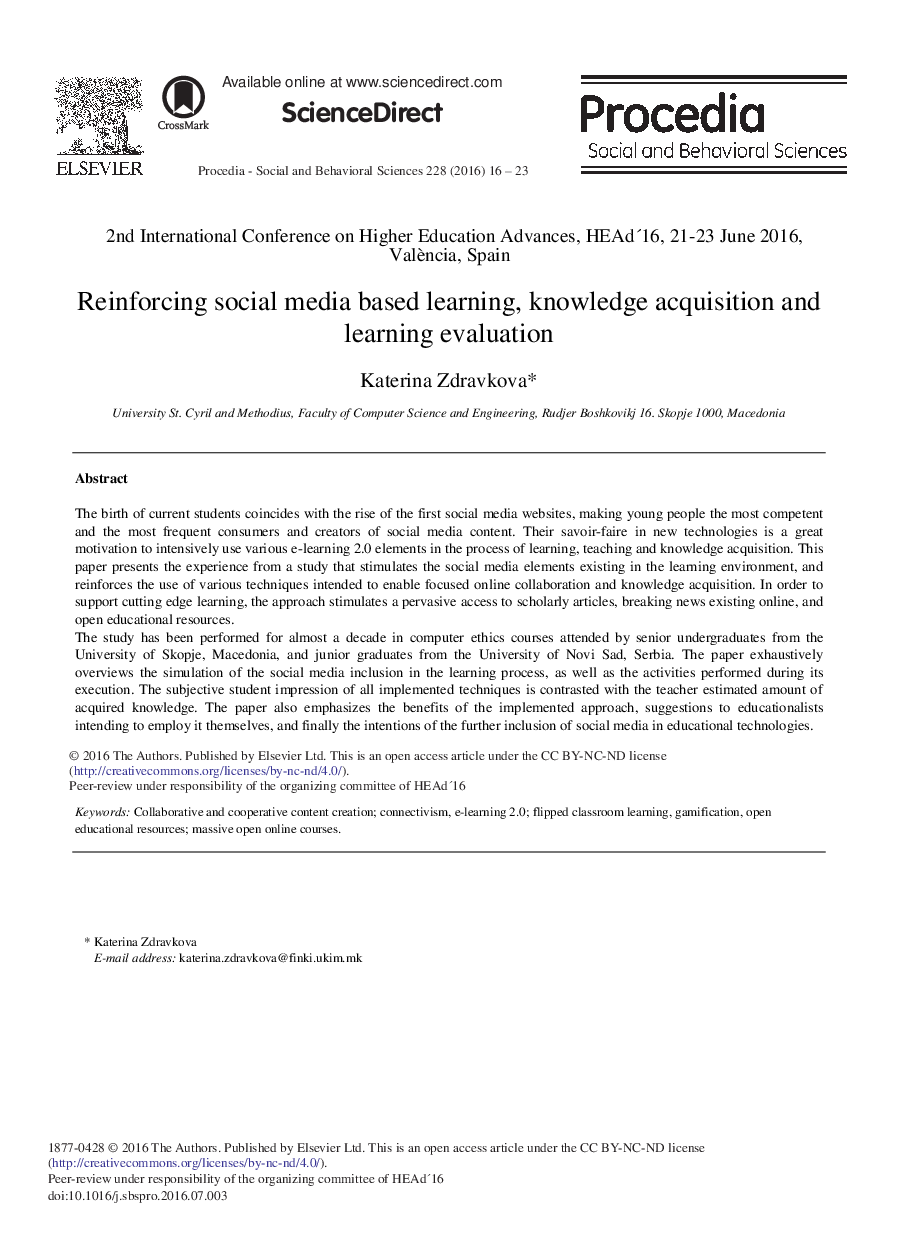| Article ID | Journal | Published Year | Pages | File Type |
|---|---|---|---|---|
| 1107113 | Procedia - Social and Behavioral Sciences | 2016 | 8 Pages |
The birth of current students coincides with the rise of the first social media websites, making young people the most competent and the most frequent consumers and creators of social media content. Their savoir-faire in new technologies is a great motivation to intensively use various e-learning 2.0 elements in the process of learning, teaching and knowledge acquisition. This paper presents the experience from a study that stimulates the social media elements existing in the learning environment, and reinforces the use of various techniques intended to enable focused online collaboration and knowledge acquisition. In order to support cutting edge learning, the approach stimulates a pervasive access to scholarly articles, breaking news existing online, and open educational resources.The study has been performed for almost a decade in computer ethics courses attended by senior undergraduates from the University of Skopje, Macedonia, and junior graduates from the University of Novi Sad, Serbia. The paper exhaustively overviews the simulation of the social media inclusion in the learning process, as well as the activities performed during its execution. The subjective student impression of all implemented techniques is contrasted with the teacher estimated amount of acquired knowledge. The paper also emphasizes the benefits of the implemented approach, suggestions to educationalists intending to employ it themselves, and finally the intentions of the further inclusion of social media in educational technologies.
